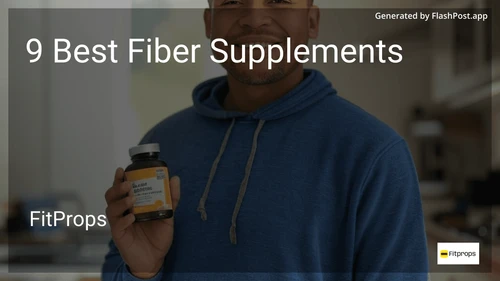Best Fiber Supplements to Buy in January 2026
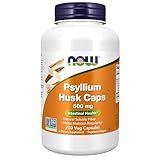
NOW Foods Supplements, Psyllium Husk Caps 500 mg, Non-GMO Project Verified, Natural Soluble Fiber, Intestinal Health*, 200 Veg Capsules
-
BOOST DIGESTIVE HEALTH: SUPPORTS REGULARITY & GUT WELLNESS NATURALLY.
-
CONVENIENT FIBER BOOST: EASY-TO-TAKE CAPSULES ENHANCE DAILY FIBER INTAKE.
-
TRUSTED QUALITY: NON-GMO, VEGAN, AND GMP-CERTIFIED FOR OPTIMAL SAFETY.


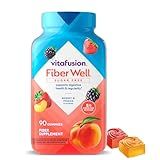
Vitafusion Fiber Well Gummy Vitamins, 90 Count (Packaging May Vary)
- TOP-SELLING ADULT GUMMY VITAMINS WITH A DELICIOUS TASTE!
- BOOST DIGESTIVE HEALTH WITH 5G PREBIOTIC FIBER PER SERVING!
- PURE INGREDIENTS: NO GLUTEN, NO HIGH-FRUCTOSE CORN SYRUP!


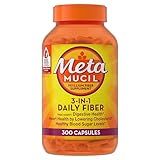
Metamucil, Psyllium Husk Capsules, 300 Capsules, 3-in-1 Fiber Supplement, Daily Psyllium Husk Fiber Capsules Help Support Digestive Health by Promoting Regularity*, Help Supplement Daily Fiber Intake
- BOOST DIGESTIVE & HEART HEALTH WITH TRUSTED PSYLLIUM FIBER CAPSULES!
- CONVENIENT DAILY FIBER: NO MIXING REQUIRED FOR EASY USE!
- #1 DOCTOR RECOMMENDED: RELY ON 90+ YEARS OF TRUSTED QUALITY!



Amazon Basics Fiber Gummies for Digestive Health and Regularity, Orange, Lemon & Strawberry Flavors, 90 Count, Pack of 1 (Previously Solimo)
- DELICIOUS FRUIT FLAVORS: ORANGE, LEMON, AND STRAWBERRY DELIGHT!
- VEGETARIAN, GLUTEN-FREE GUMMIES FOR EVERY DIETARY NEED.
- 90 GUMMIES: A 1.5-MONTH SUPPLY OF TASTY DAILY NUTRITION!


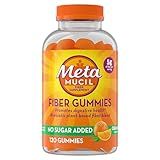
Metamucil Fiber Gummies for Adults, No Sugar Added Orange Flavor, 5g Prebiotic Plant Based Fiber Supplement Blend, 120 Count
- DELIGHTFUL ORANGE-FLAVORED GUMMIES WITH ZERO ADDED SUGAR!
- TRUSTWORTHY METAMUCIL BRAND-#1 IN FIBER SUPPLEMENTS!
- BOOST DIGESTIVE HEALTH WITH 5G OF PLANT-BASED FIBER!


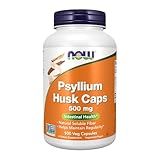
NOW Foods Supplements, Psyllium Husk Caps 500 mg, Non-GMO Project Verified, Natural Soluble Fiber, Intestinal Health*, 500 Veg Capsules
- BOOST INTESTINAL HEALTH: PSYLLIUM PROMOTES REGULARITY AND DIGESTION!
- CONVENIENT FIBER BOOST: EASY WAY TO REACH DAILY FIBER INTAKE GOALS!
- TRUSTED QUALITY: NON-GMO, VEGAN, AND GMP CERTIFIED FOR YOUR PEACE OF MIND!


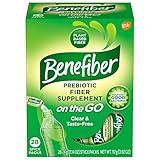
Benefiber On The Go Prebiotic Fiber Supplement Powder for Digestive Health, Daily Fiber, Unflavored - 28 Sticks (3.92 Ounces)
-
BOOST DIGESTIVE HEALTH DAILY WITH PREBIOTIC FIBER IN STICK PACKS!
-
SUGAR-FREE, GLUTEN-FREE, AND FLAVORLESS FOR VERSATILE USE ANYWHERE!
-
EASY-TO-MIX POWDER DISSOLVES INSTANTLY IN FOOD OR DRINKS-NO FUSS!


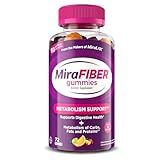
MiraFIBER Gummies from The Makers of MiraLAX, 8g of Daily Fiber Per Serving, Metabolism Support with B Vitamins, Gut Health for Men & Women, Prebiotic Fiber Gummies for Adults, Mixed Fruit Flavor 72Ct
- SUPPORTS DIGESTION & METABOLISM WITH 8G OF FIBER PER SERVING!
- PREBIOTIC FORMULA NOURISHES GOOD GUT BACTERIA FOR OPTIMAL HEALTH.
- PACKED WITH ESSENTIAL B VITAMINS FOR ENERGY AND METABOLISM BOOST!


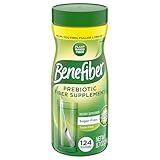
Benefiber Daily Prebiotic Fiber Supplement Powder for Digestive Health, Daily Fiber Powder, Unflavored - 62 Servings (8.7 Ounces)
- SUPPORTS DIGESTIVE HEALTH BY NOURISHING GOOD GUT BACTERIA DAILY.
- DISSOLVES CLEAR AND COMPLETELY IN FOOD AND BEVERAGES-NO GRIT!
- AMERICA'S #1 PREBIOTIC FIBER BRAND FOR FEELING FULLER LONGER.


In today's fast-paced world, maintaining a healthy diet can be challenging. One essential component of a healthy diet is fiber, which is crucial for maintaining digestive health, regulating blood sugar levels, and supporting heart health. For many, reaching the recommended daily fiber intake through food alone can be difficult, which is where fiber supplements come into play. This guide will provide an overview of fiber supplements and how to choose the best one for your needs, without leaning towards specific product recommendations.
Understanding Fiber: Soluble vs. Insoluble
Before diving into fiber supplements, it's important to understand the two main types of dietary fiber:
-
Soluble Fiber: This type of fiber dissolves in water to form a gel-like substance. It can help lower blood cholesterol and glucose levels. Foods rich in soluble fiber include oats, peas, beans, apples, and citrus fruits.
-
Insoluble Fiber: This fiber does not dissolve in water and is beneficial for promoting the movement of material through your digestive system. It is found in whole grains, nuts, beans, and vegetables like cauliflower, green beans, and potatoes.
For optimal health benefits, it is recommended to include both types of fiber in your diet.
Benefits of Fiber Supplements
Fiber supplements can be a convenient way to increase your intake of this essential nutrient, especially if your diet is lacking in fibrous foods. Some benefits of fiber supplements include:
-
Improved Digestive Health: Fiber helps regulate the digestive system, which can prevent constipation and promote regular bowel movements.
-
Blood Sugar Regulation: Fiber can slow the absorption of sugar, which may help control blood sugar levels, an essential factor for individuals with diabetes.
-
Cholesterol Management: Soluble fiber, in particular, can aid in reducing levels of bad cholesterol, promoting heart health.
-
Weight Management: Fiber can provide a feeling of fullness, which might help control appetite and manage weight.
How to Choose the Best Fiber Supplement
When choosing a fiber supplement, consider the following factors:
Consider Your Dietary Needs
Identify what type of fiber you may be lacking in your diet. If you need to lower cholesterol or manage blood sugar, soluble fiber supplements might be more beneficial. If your main goal is to improve digestive regularity, look for supplements high in insoluble fiber.
Check the Source of Fiber
Fiber supplements are derived from various sources including psyllium husk, methylcellulose, inulin, wheat dextrin, and glucomannan. Research each to see which aligns with your health goals and dietary preferences.
Evaluate Form and Convenience
Fiber supplements come in various forms including powders, capsules, tablets, and gummies. Choose a form that fits easily into your daily routine. For instance, powders can be mixed into smoothies or drinks, while capsules might be more straightforward for those on the go.
Assess Additives and Ingredients
Some fiber supplements contain additional ingredients like sweeteners, artificial colors, or preservatives. If you are sensitive to any of these, look for brands that offer pure or minimally processed options.
Start Gradually
Increasing fiber intake too quickly can cause digestive discomfort. It is advisable to start with a lower dose and gradually increase to the recommended amount, allowing your body to adjust.
Consult a Healthcare Professional
Before introducing a new supplement to your diet, it is wise to consult with a healthcare professional, especially if you have underlying health conditions or are currently taking medication.
Conclusion
Incorporating the right fiber supplement into your diet can provide numerous health benefits, from improving digestion to aiding in weight loss. By understanding your dietary needs and choosing the supplement that best suits your lifestyle, you can enhance your overall well-being. Remember, while supplements can help, a balanced diet rich in natural sources of fiber should always be the goal.
